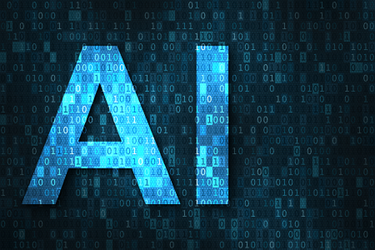AI: Adding New Intelligence And Speed To Diagnostics
By Kevin J. Smith, Ivanti

Greater access to data and faster cross-referencing of symptoms, via AI, provides more thorough, real-time, treatment insights.
Time is a critical factor in healthcare, and while the body of diagnostic-related knowledge may have grown exponentially, until recently, the ability to access and process this data has lagged behind. With the advent of more mature artificial intelligence (AI) we now have the technical capability to not only access millions of cases but to cross-reference this data and provide healthcare professionals insights in a timeframe that can benefit their patients.
The ‘Intelligent Diagnostic Assistant’
We understand the healthcare profession remains somewhat skeptical about AI. In the case of diagnostics, AI does not replace, or threaten, healthcare professionals’ expertise or contribution to diagnostics. If anything, AI brings more value to this precious expertise. Where AI can be of tremendous value is as an intelligent diagnostic assistant, functioning at a pace needed to make a difference in diagnostics.
Here are some examples of how AI can help with diagnostics:
- The Proverbial Second Opinion. Physicians and clinicians will often look to outside resources (i.e.
other doctors and healthcare professionals) for a second opinion. They need these insights in a timeframe that can effectively add to the patient evaluation. AI can essentially fast-track access to such relevant data and send to participating physicians, expanding their diagnostic knowledge base. - On-Time Data. Leveraging an AI bot, professionals can quickly cross-reference medical symptoms, saving significant amounts of time in what is typically a labor-intensive process. AI makes this process much faster as it can facilitate a ‘virtual conversation’, pull relevant data based on the conversation input, and provide this enhanced intelligence at any time.
- Widening the Net of Information. Big data, a favorite IT buzzword, really has no value unless the data can be harnessed and is readily available to be viewed and analyzed by a specific user or group. AI is the enabling force here. It can access millions of cases and provide this access to a far wider group of physicians and clinicians with different experiences. Through an AI conversational interface, a physician now can ask a question and receive a richer repository of case detail, thanks to AI’s capability to quickly access big data content.
- Enhanced Surgical Conferencing. Using a smart conference or chat-like interface, surgeons can quickly convene with their board of peers for feedback on difficult or new procedures and treatment plans. Rather than the traditional method of scheduling meetings around a hospital conference table, the AI element can make conversations happen faster, much more efficiently, and in a timeframe that can help physician and patient.
- Greater Pharma Insights. Related to diagnostics is the need to prescribe the most appropriate and effective drugs for a particular case. AI can help further refine this decision making. Drug companies can use AI to leverage the massive amounts of data available to learn more about new drugs, protocols, interactions, and much more.
AI In The Bigger Picture
Beyond diagnostics, AI is starting to play a more critical role in overall healthcare provider operations. Just like virtually all people in the workforce now, physicians, nurses and other clinicians are making use of mobile devices such as smart phones, tablets, notebooks and virtual desktops to perform services. They are roaming between devices but expect the same accuracy and up-to-date patient files regardless of which device they’re using. AI-enabled IT service management (ITSM) gives clinicians the confidence that the sessions they conduct on their devices – whether it is taking notes, responding to communications or reviewing X-Rays/scans – are captured, retained and managed in accordance with security, audit and compliance standards.
AI-enabled ITSM can also help these professionals by more efficiently routing inquiries. With time always at a premium, an AI element, for example, can efficiently process and route inquiries, and by ‘learning’ patterned behavior, can help determine whether a call needs to be escalated or can be handled through an automated process.
With HIPAA, GDPR, and other privacy standards now in place, AI provides another layer of risk mitigation. AI-ITSM can also help to weed out spurious inquiries that could signal a possible breach.
AI Skepticism Will Wane
As AI becomes more integrated into healthcare and more measurable results are recorded, reticence to embrace AI for diagnostics, inquiries and critical decision making will certainly wane. AI is here to stay, and we are just seeing the beginning of its value to healthcare.
About The Author
Kevin J. Smith is Senior Vice President, Ivanti.
